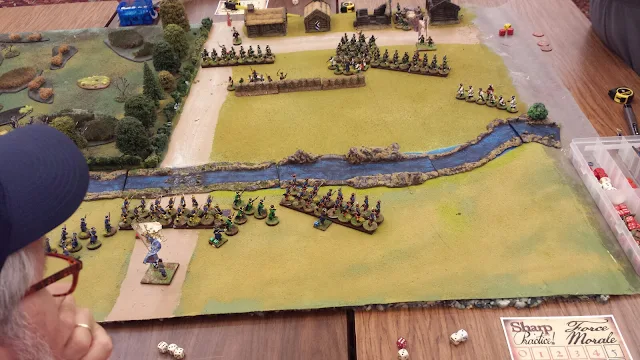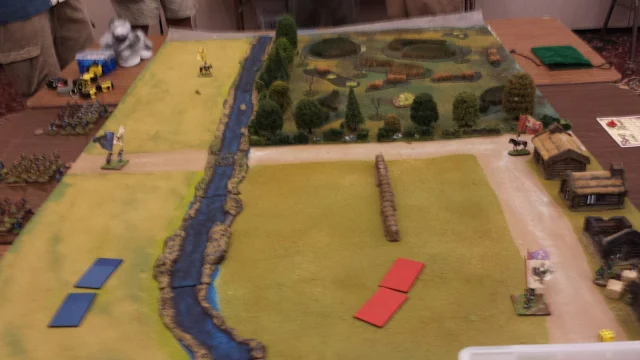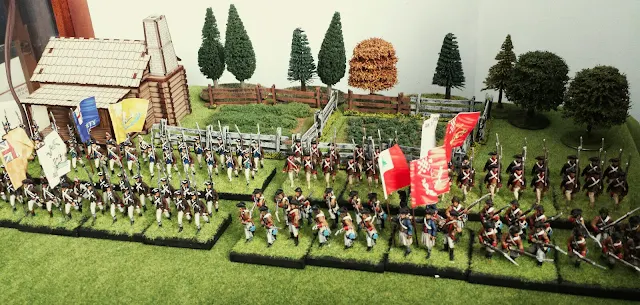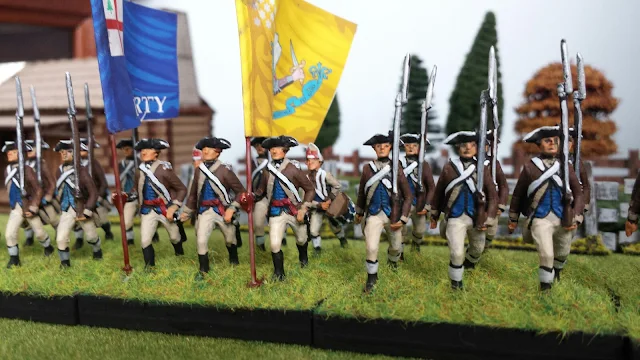One of my favorite regiments from the Rev War. The regiments history is intertwined with that of its commander, Colonel Laomi Baldwin. He was one of those New England men from who did an amazing variety of things in his lifetime; and did them all well.
 |
| Statue of Baldwin in Woburn Massachusetts |
I first encounter Baldwin while working at Minute Man National Historic Park through his accout of the fighting at the Lincoln Woods, later called the Bloody Angle. His letters and account books in Houghton library at Harvard continued his observations during the campaign around New York city in 1776 and the fighting at Pell's Point New York.
The 26th Continental Regiment started as Colonel Gerrish's Massachusetts regiment in 1775 during the siege of Boston. Following Gerrish's dismissal from the army on August 19 Baldwin was promoted to Colonel commanding the regiment.
Following the disbanding of the 1775 army, Baldwin was appointed Colonel of the new 26th Continental Regiment in January 1776. The regiment joined Washington's army around New York city in April 1775. They saw fighting at Throgs Neck and Pell's Point New York. After retreating across the Jerseys they fought at the victory at Trenton before their enlistment expired. In 1777 they were consolidated with the 21st Continental Regiment to form the new 9th Massachusetts regiment.
Baldwin retired from the army due to ill health in 1777. He continued to be active in his community. In addition to developing the Baldwin Apple he was the chief engineer for the construction of the Middlesex canal.
The 26th was unusual in having a Grenadier company. They wore a Seven Years War style cap but with GW instead of GR. A copy of the cap is in the Smithsonian museum. I hope to add Grenadier figures to the regiment in the future.
Regimental uniform was a London brown coat with buff facings. In addition there are some interpretation with a light blue waistcoat or vest. In painting my figures I went with a dark brown coat and buff facings and linings. My waistcoat blue is darker then most pictures I have seen but it looks very nice against the brown so I kept it.
Regimental colors are one of the Gostelow flags in yellow with a mailed fist; an early symbol of Massachusetts. The blue pine tree flag or "Bunker Hill" flag is also approved for New Englanders. Conjecture but possible combinations.
Sharp eyed readers have noticed in previous regiments I have included black American soldiers. While New England did have a small slave population in 1775 there were a larger population of free men. This was commented on about the 1775 Cambridge army. Where I have discovered these men in regiments historically I have included them in my miniature regiments.











































